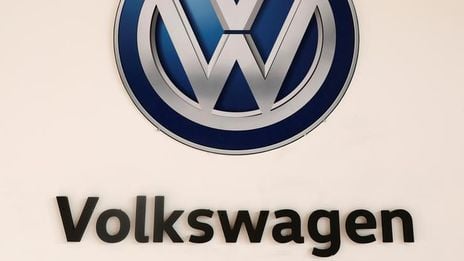Lamborghini, part of the Volkswagen group, hopes the SUV will allow it to repeat stable-mate Porsche's success in the fast-growing market for luxury four-by-fours and boost profitability.
Its targeted volumes of around 3,000 vehicles per year will more than double the company's deliveries, which stood at 2,530 vehicles last year.
"The introduction of a third model ... signifies for us the beginning of a new era," Chief Executive Stephan Winkelmann said in a statement.
Winkelmann and Italy's Prime Minister Matteo Renzi met in Rome on Wednesday to sign a letter of intent on the matter.
The luxury carmaker said it would hire 500 new employees, almost double the physical size of its plant in Italy's Emilia Romagna region, and invest "hundreds of millions of euros" in the project over the lifecycle of the vehicle.
"The investment ... is at 700-800 million euros, close to a billion," Renzi said at the signing ceremony in Rome.
A source told Reuters on Tuesday that Italy's government provided tax breaks and incentives for a total of up to 90 million euros (64 million pounds) to encourage Lamborghini to base the production of the new model in the country.
With the SUV, expected to cost 180,000 euros, Lamborghini will mainly target fans of all-wheel-drive vehicles in markets such as the United States, China, the Middle East, the United Kingdom, Germany and Russia.
The carmaker also hopes to expand its customer base to families and other clients new to the high-performance brand.
The SUV could bring "new customers to the brand which may find the dramatic styling of Lamborghini products appealing, but find its typical sports cars restrictive," said Ian Fletcher, an analyst at forecaster IHS Automotive.
"If it is a success, the SUV could be a catalyst to Lamborghini broadening its portfolio further."
The carmaker first presented a concept vehicle for the SUV, named Urus, in 2012.
Lamborghini's decision to base the model in Italy follows a similar move by Fiat Chrysler
Both companies are helped by labour reform that was approved by Renzi's government earlier this year.
In a bid to tackle chronically high unemployment, the reform has eased firing restrictions in large firms and offers fiscal incentives to employers that offer workers permanent contracts.
($1 = 0.9203 euros)
(Additional reporting by Jan Schwartz in Hamburg; editing by Susan Thomas and David Evans)
By Agnieszka Flak and Francesca Piscioneri






